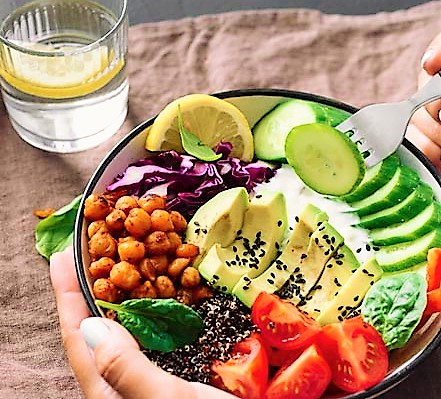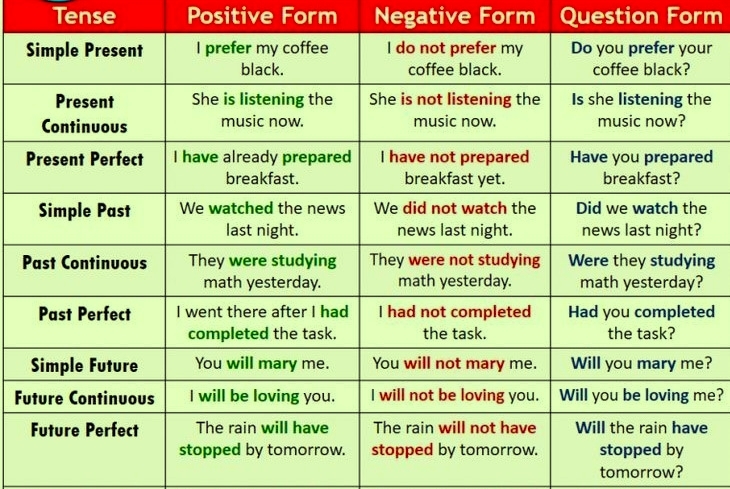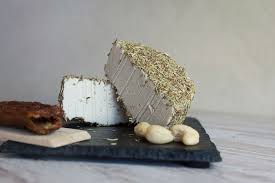It is used for finished actions, states or habits in the past with a past time reference ➣ yesterday ➣ last week ➣ at 2 o’clock ➣ in 2003 ➣ when I was born
Last week a new student from China joined our class. She came in, introduced herself, and began to talk about her country. She showed us in a map where she was from.
FORM
| Affirmative | Negative | Interrogative |
|---|---|---|
| I worked | I did not work ✄didn’t | Did I work? |
| You understood | You did not understand | Did you understand? |
| He slept | He did not sleep | Did he sleep? |
| She thought | She did not think | Did she think? |
| It worked | It did not work | Did it work? |
| We studied | We did not study | Did we study? |
| You went together | You did not go together | Did you go together? |
| They learnt | They did not learn | Did they learn? |
Famous people
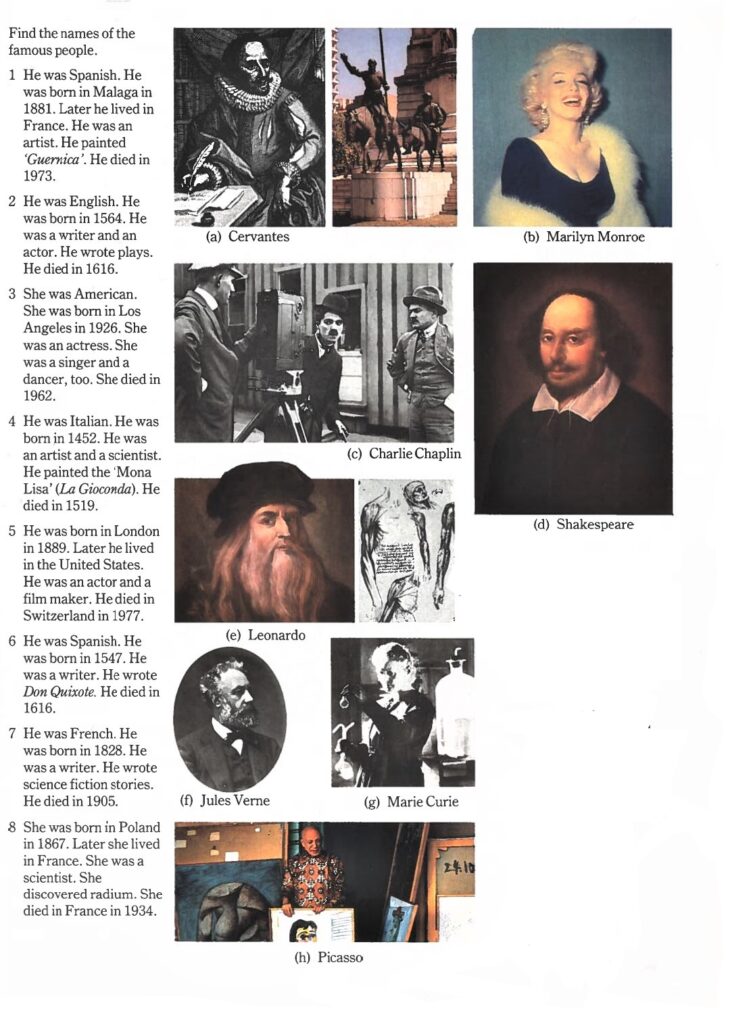
reference: New Generation Colin Granger Heinemann

Listen to what happened to Tony last weekend
First choose a, b or c and then choose the right answer for the 7 sentences:
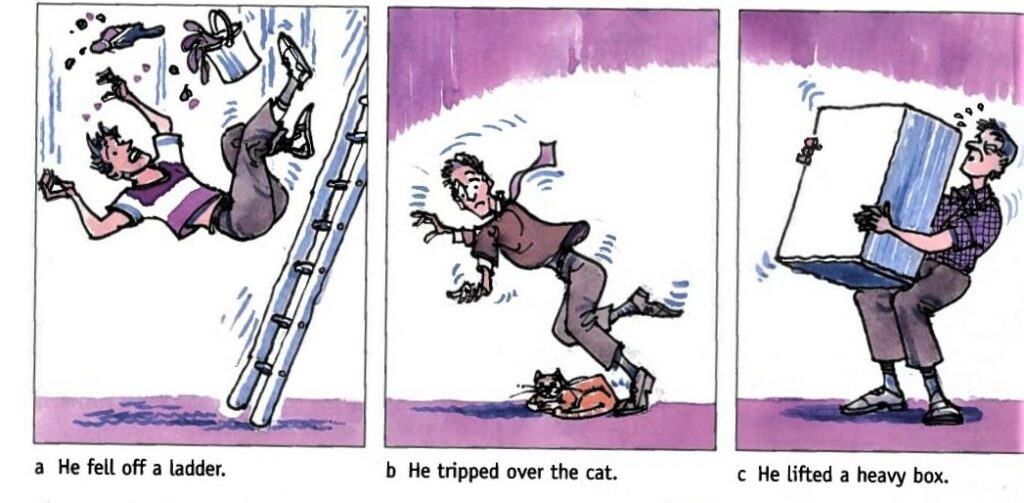
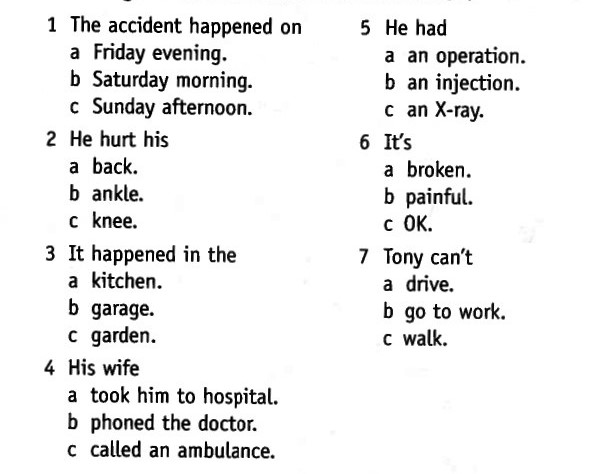
reference: English for Life Pre-Intermediate Oxford
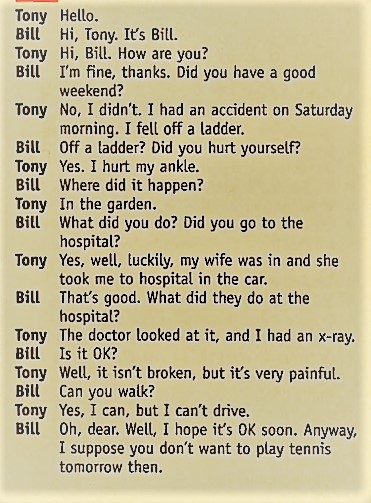
Here you have the script if you need to read it
Listen and put the pictures in chronological order

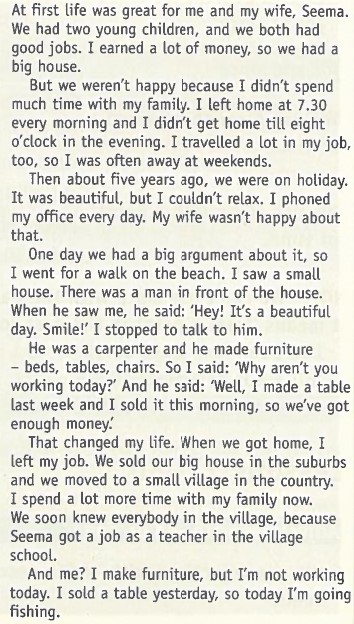
Here you have the script if you need to read it
answers: a 5 , b 4 , c 2 , d 6 , e 3 , f 1
reference: English for Life Pre-Intermediate Oxford
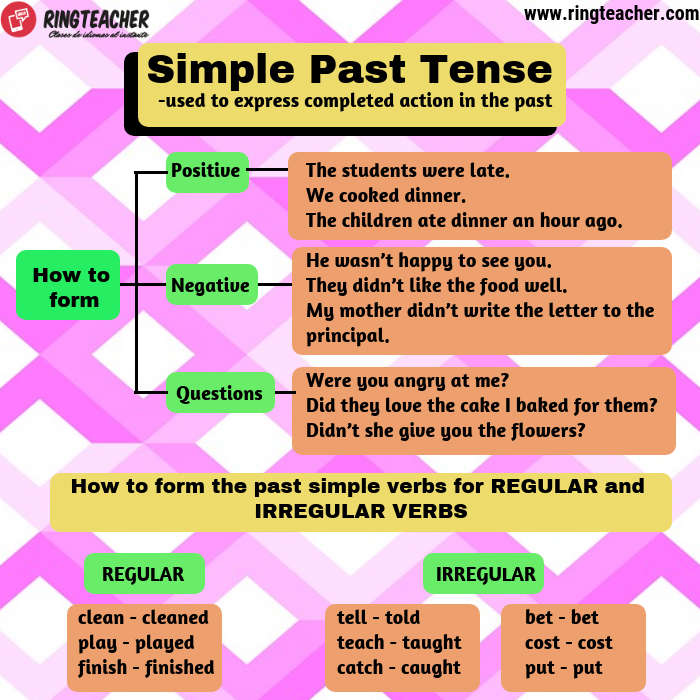
Who were these people
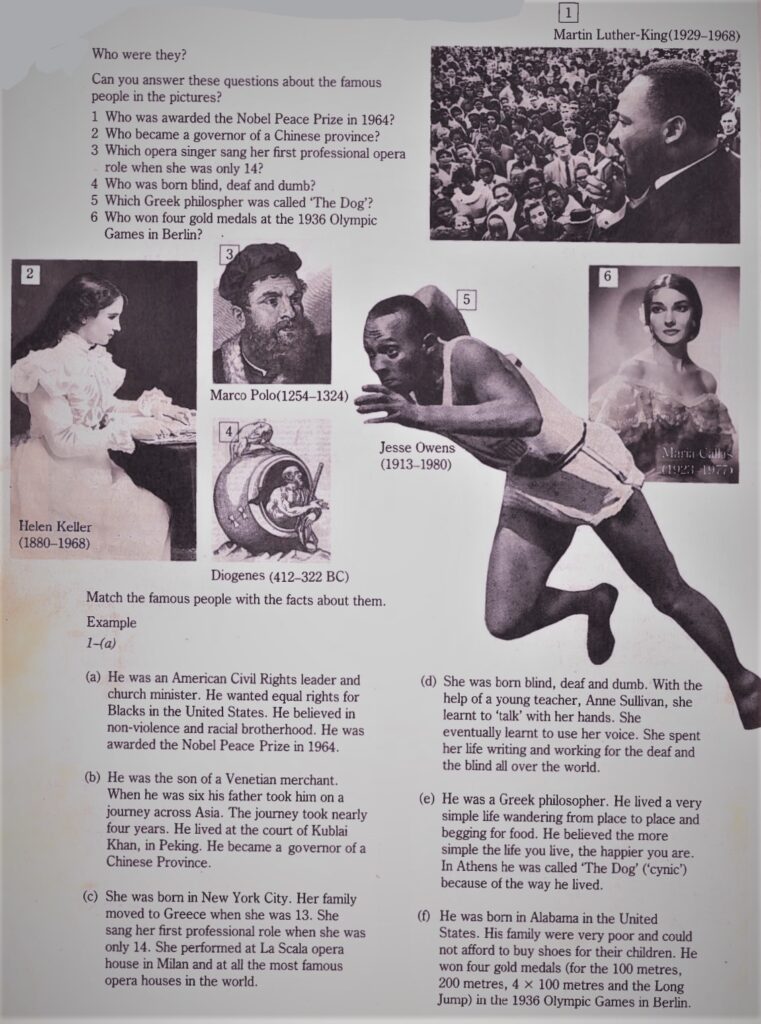
reference: New Generation Colin Granger Heinemann
VERB ➨ TO BE
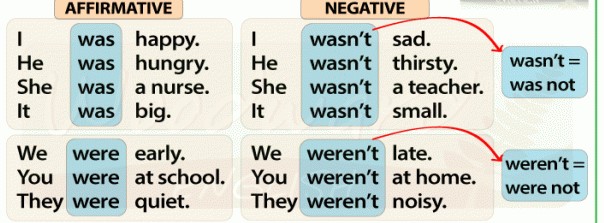
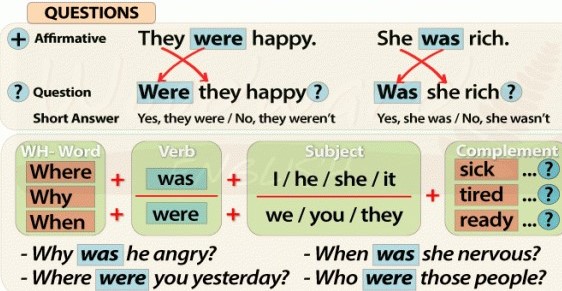
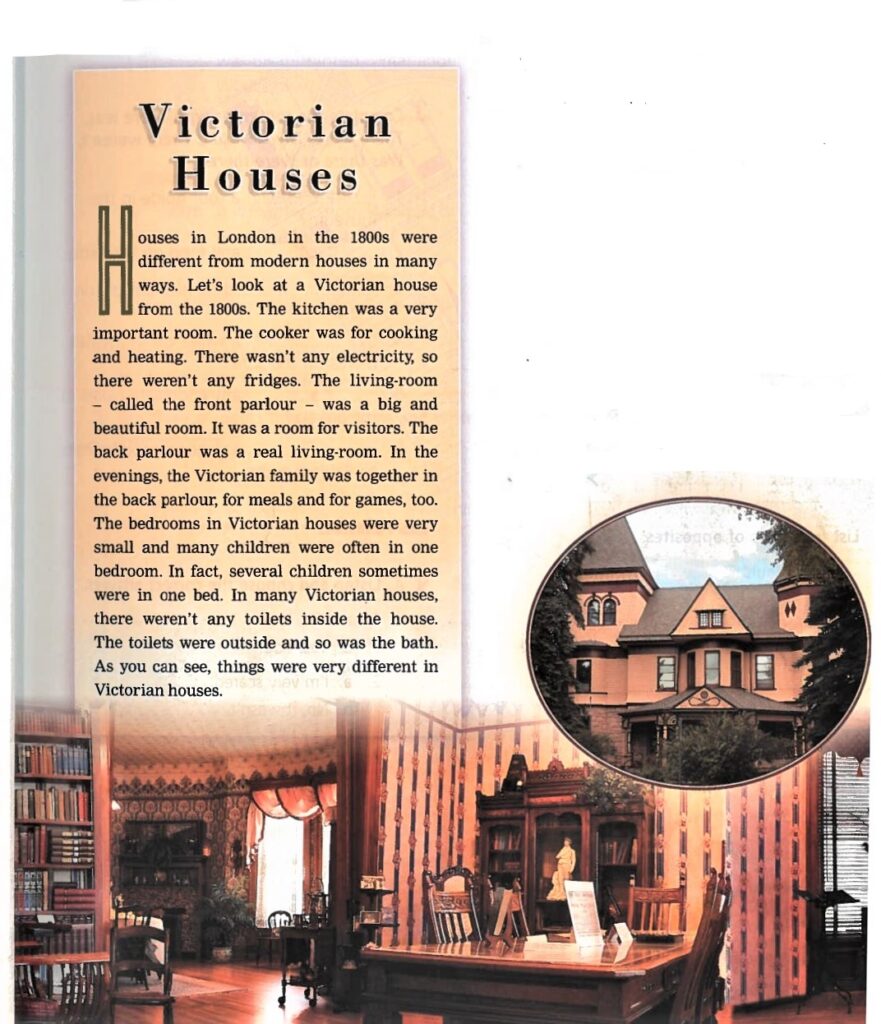
reference: English for Adults Burlington
Reading ➢ The Elephant Man
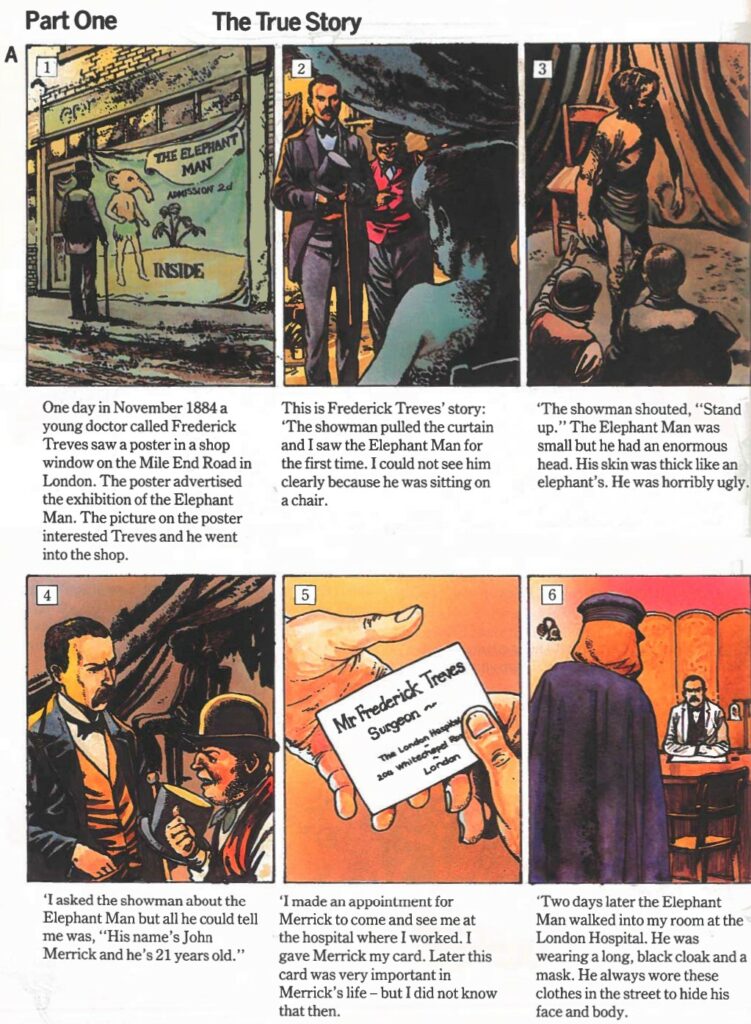
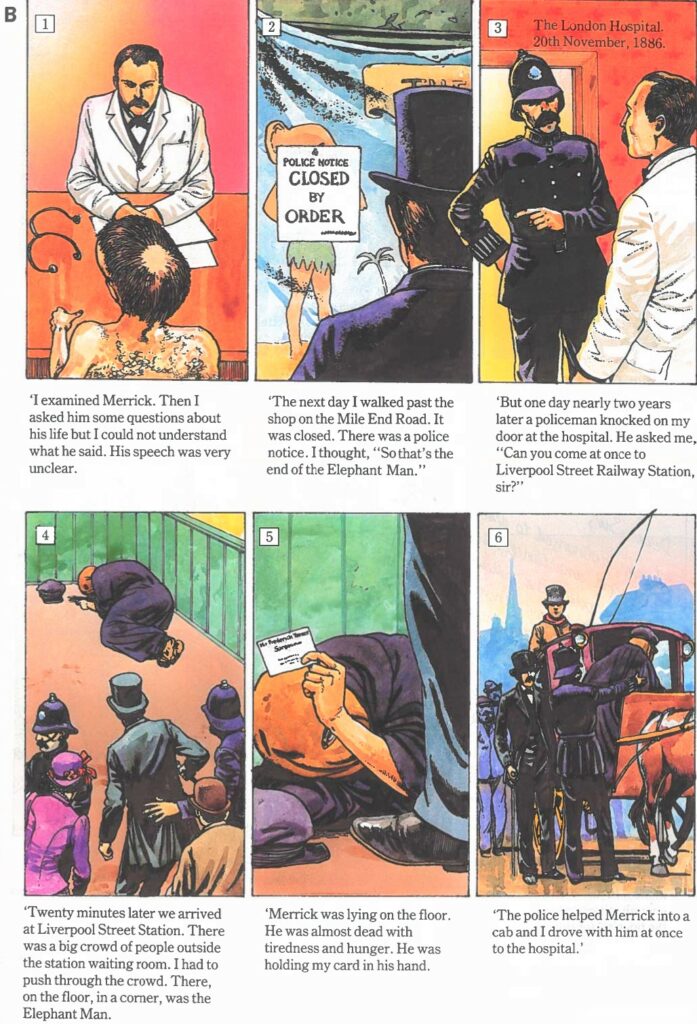
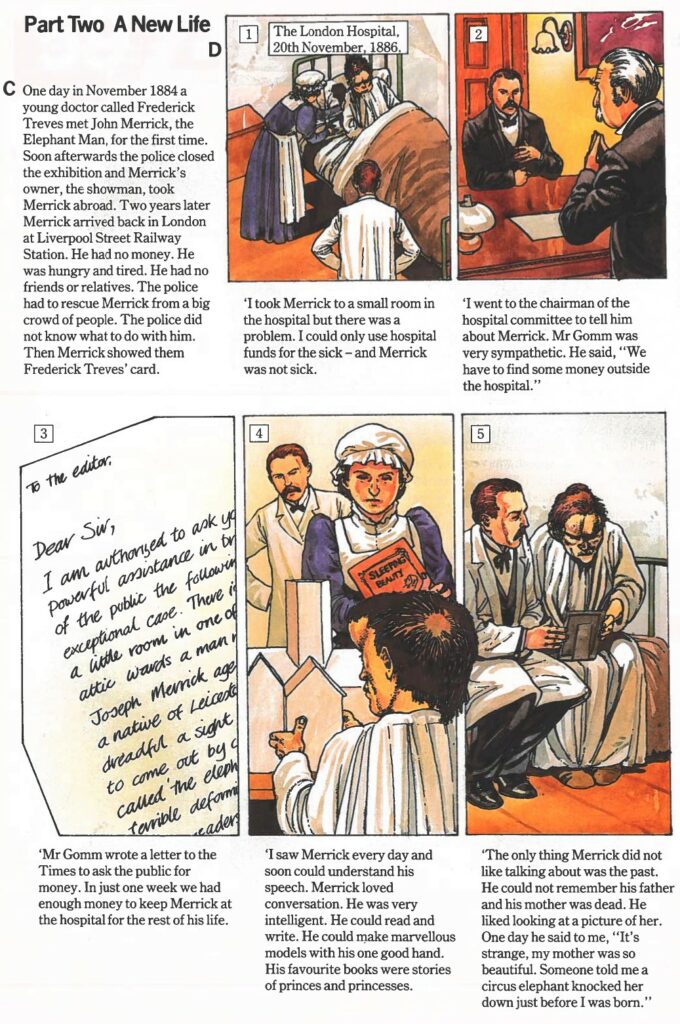
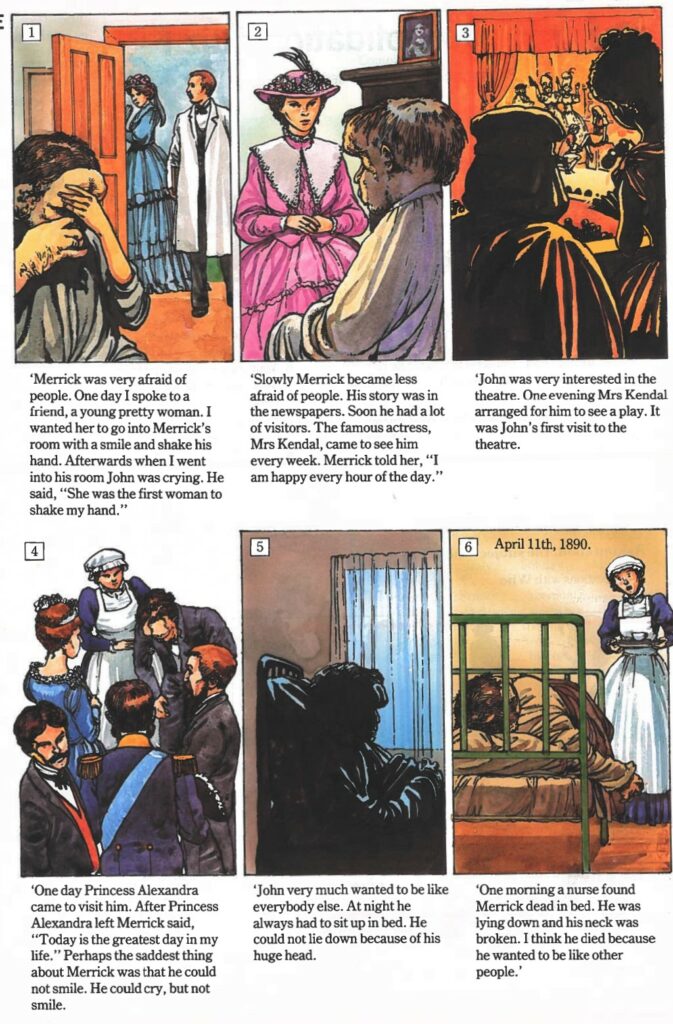
reference: New Generation Colin Granger Heinemann

